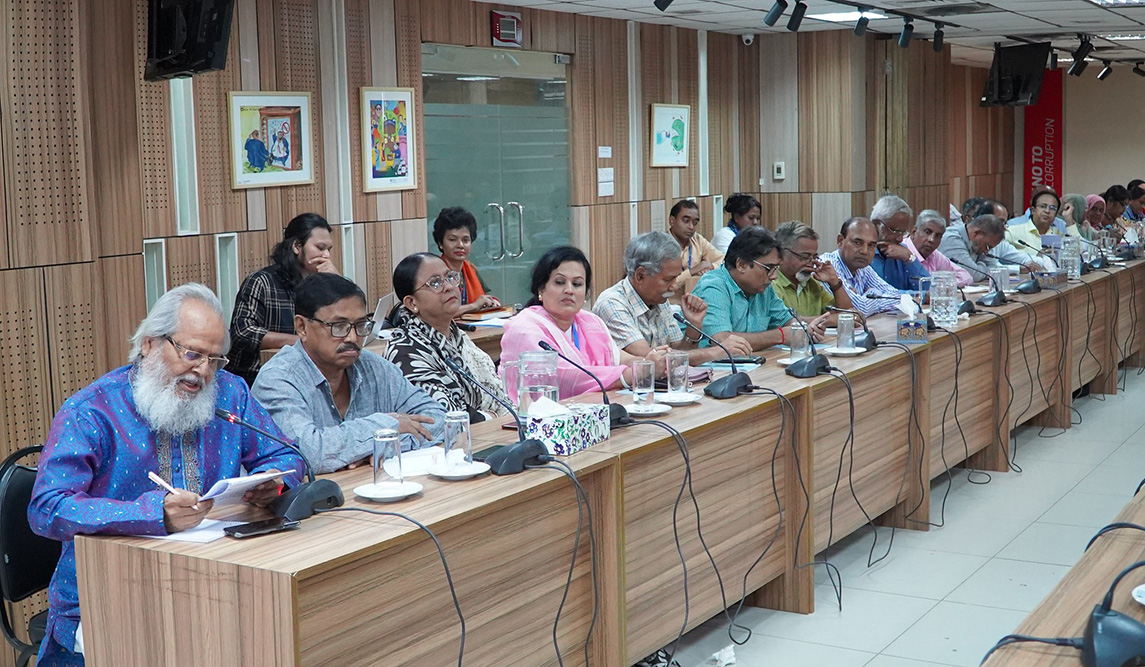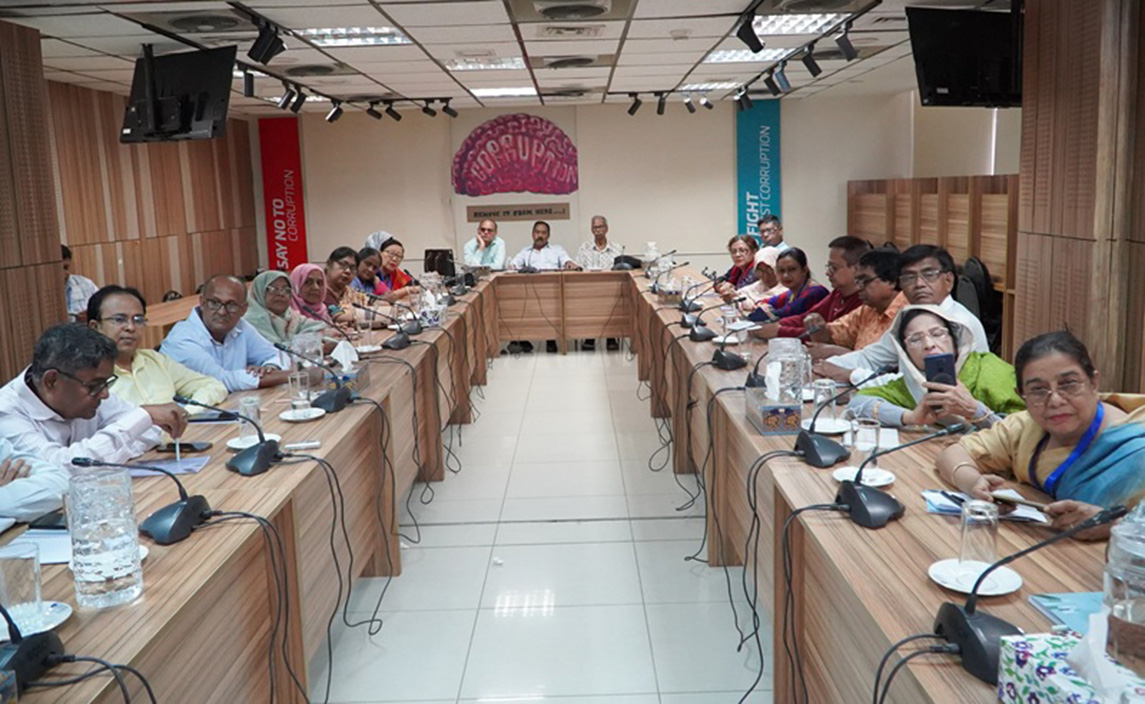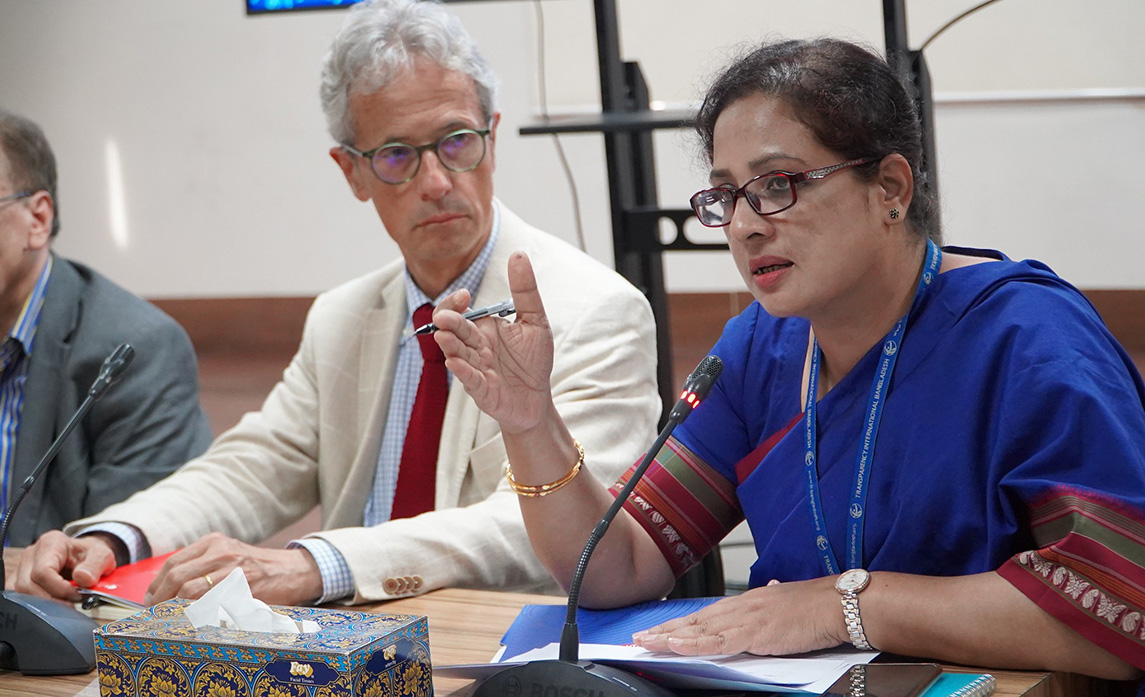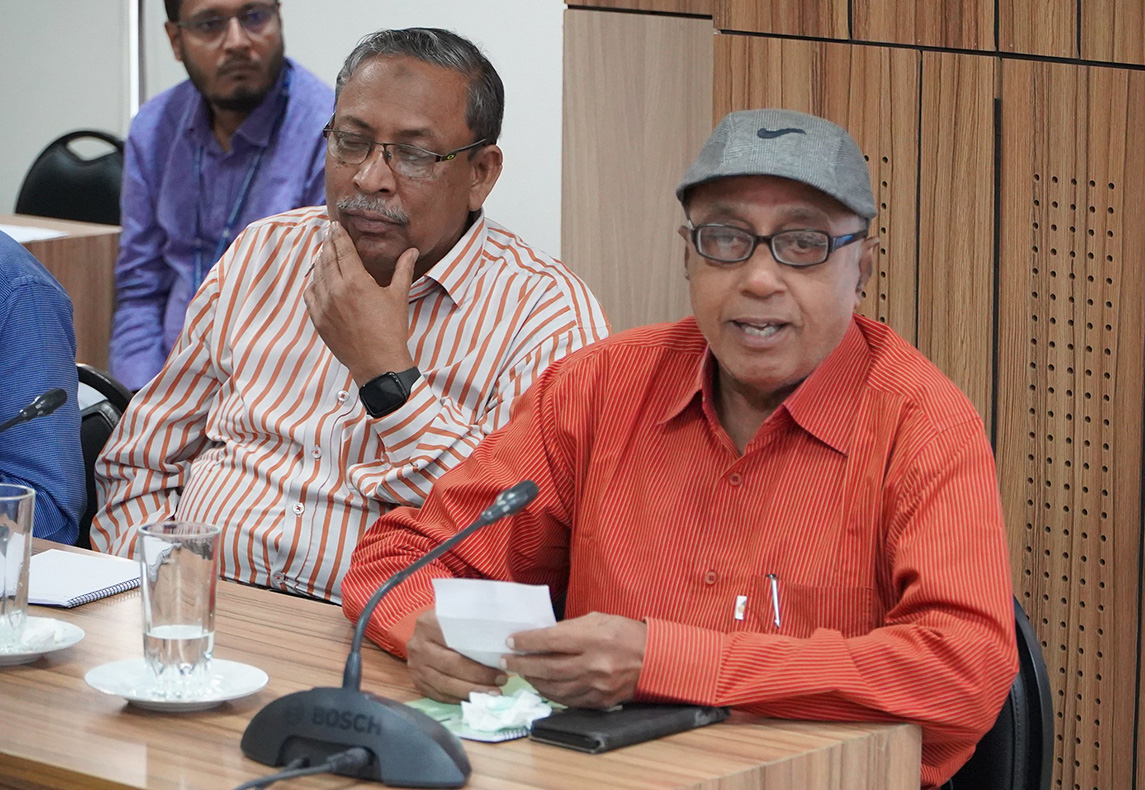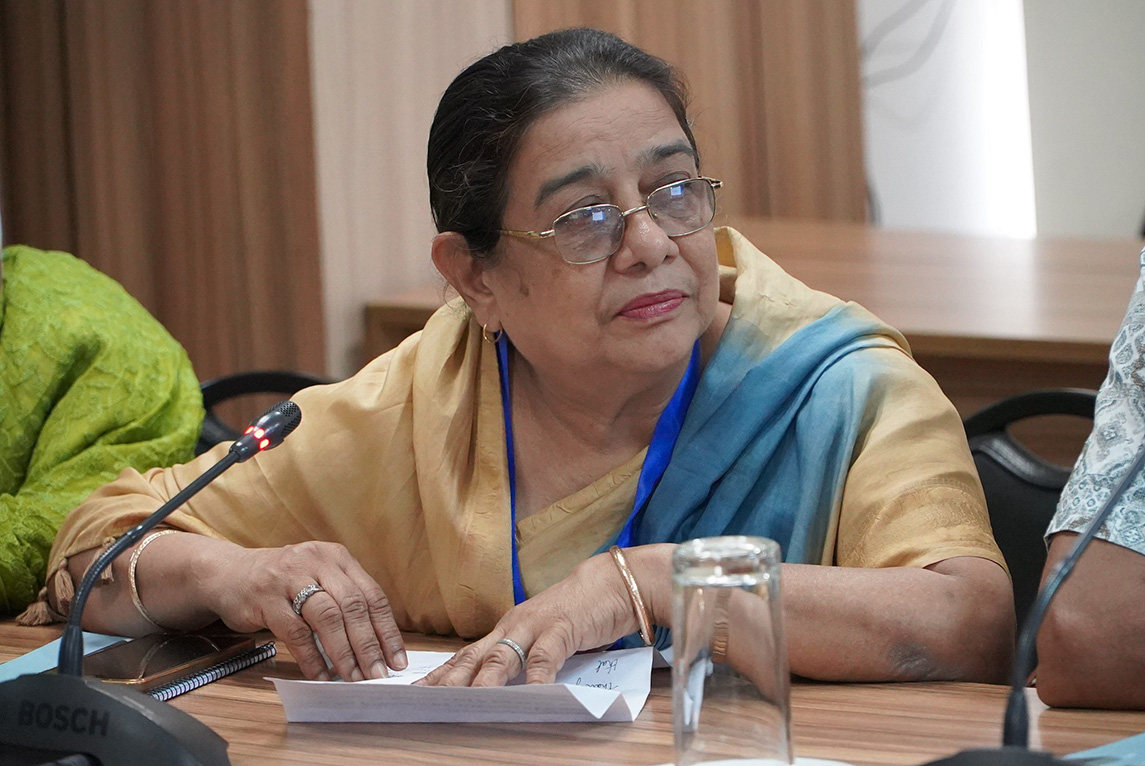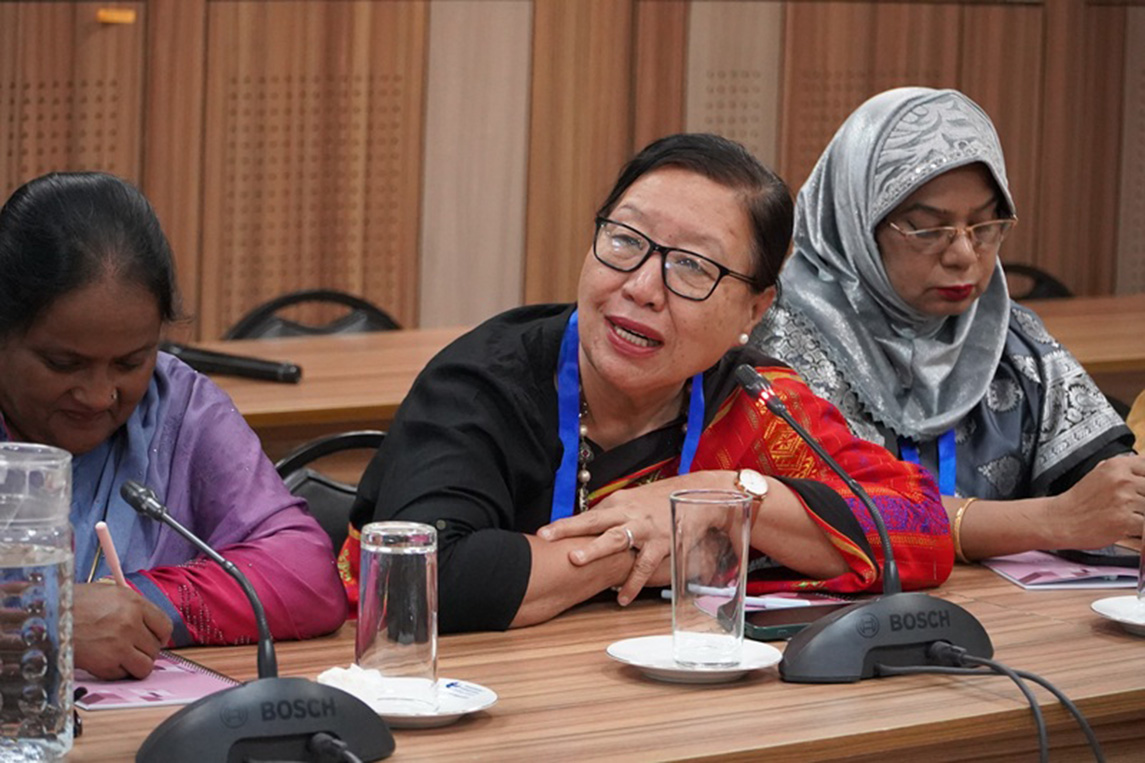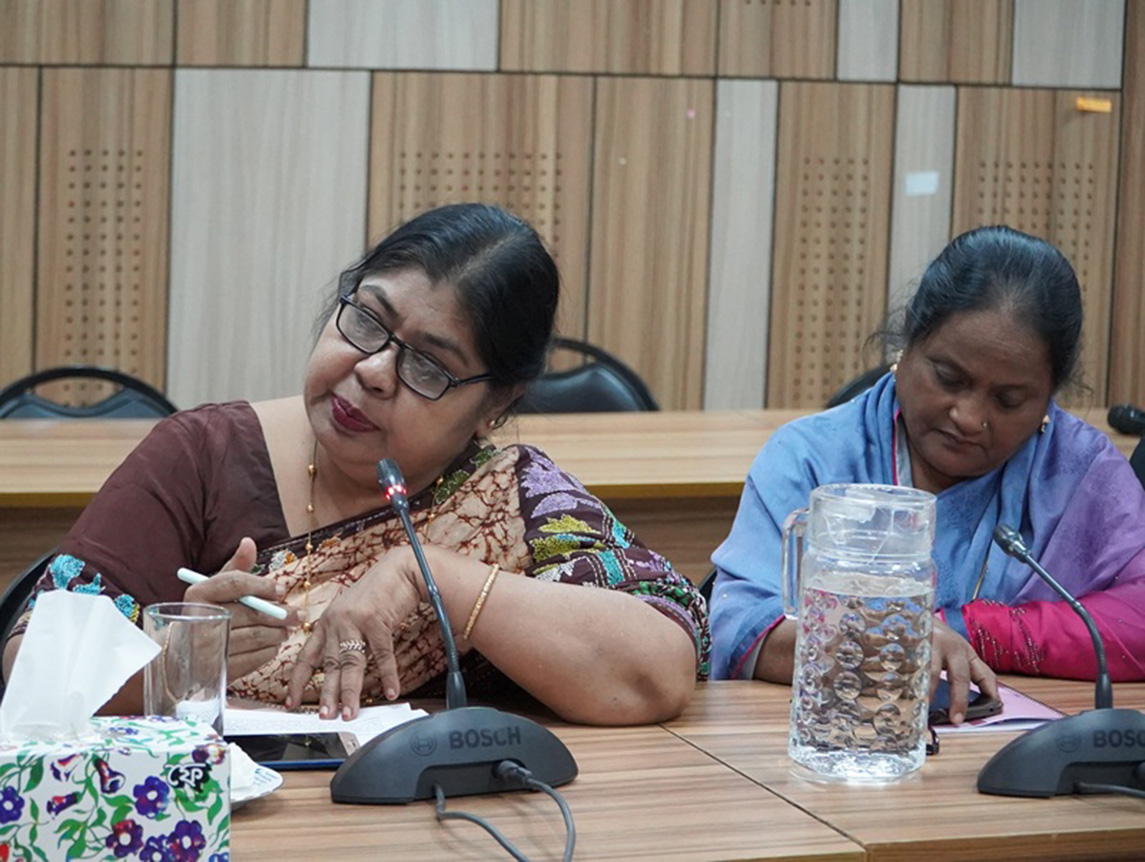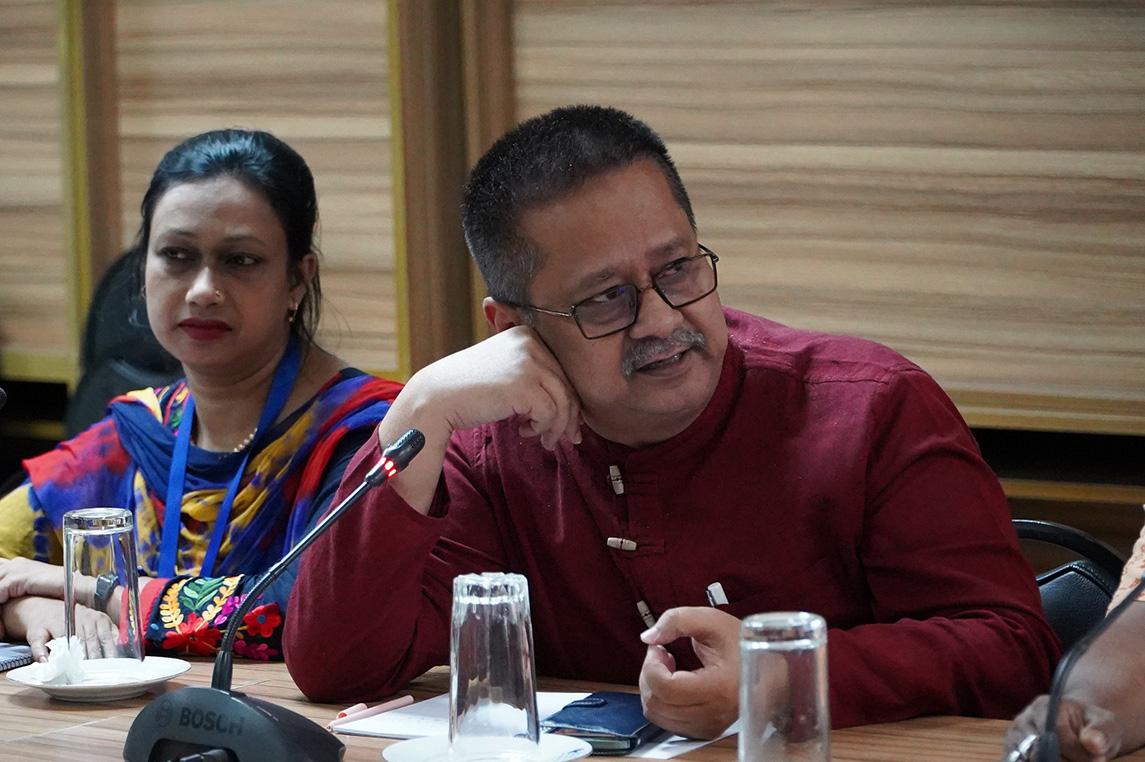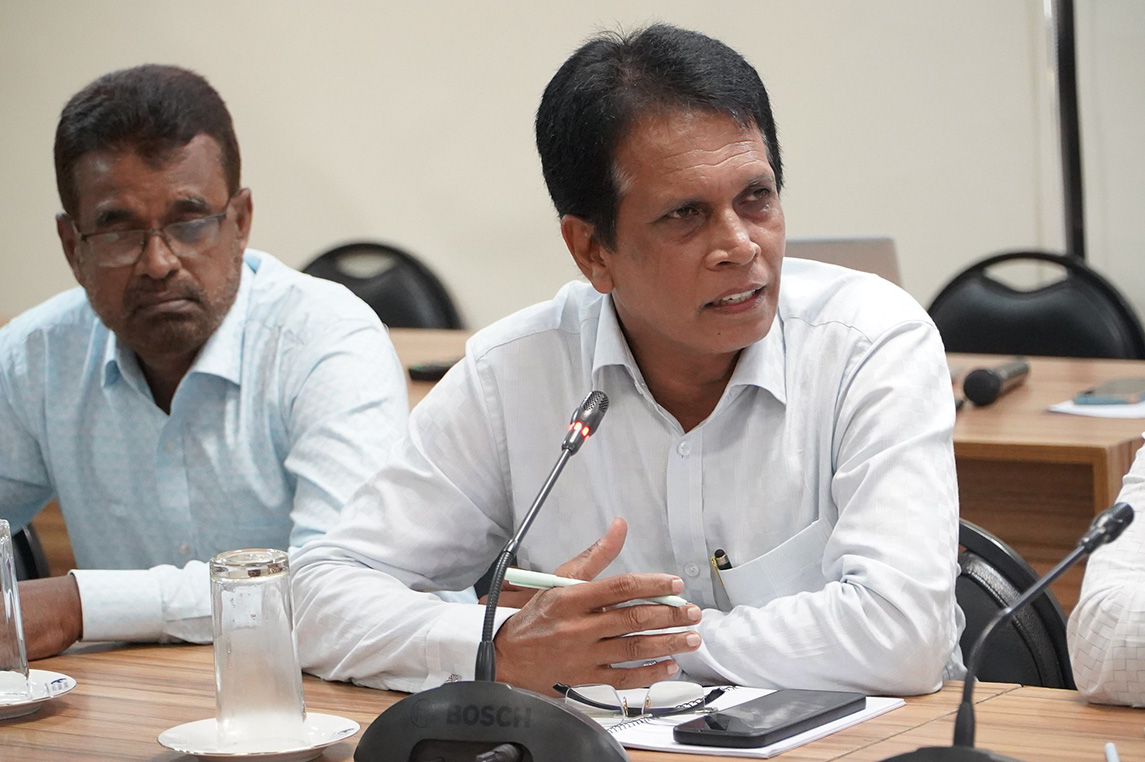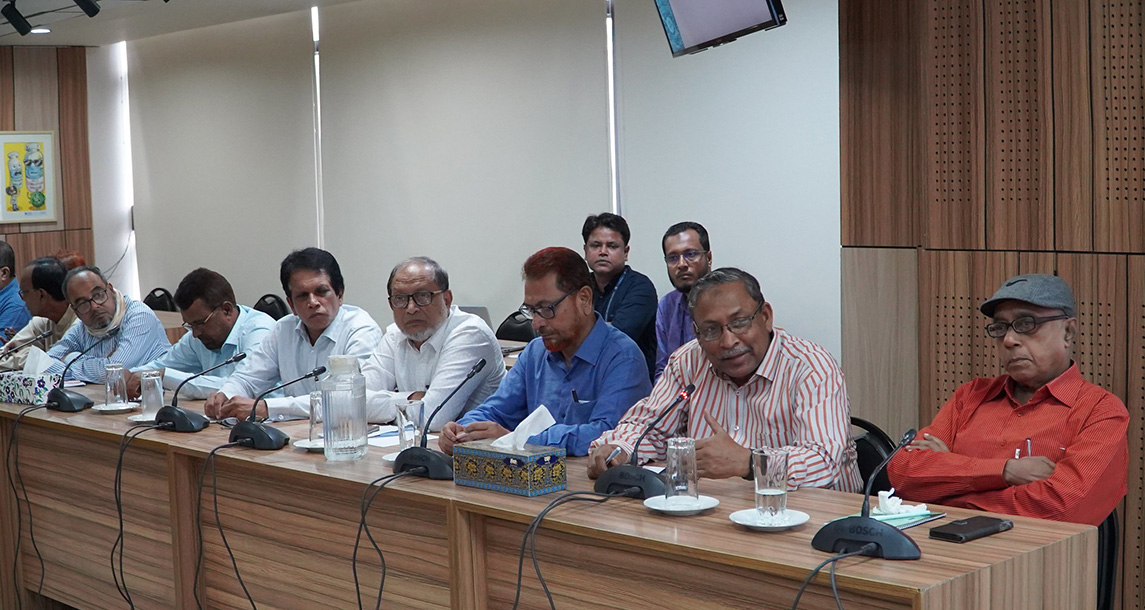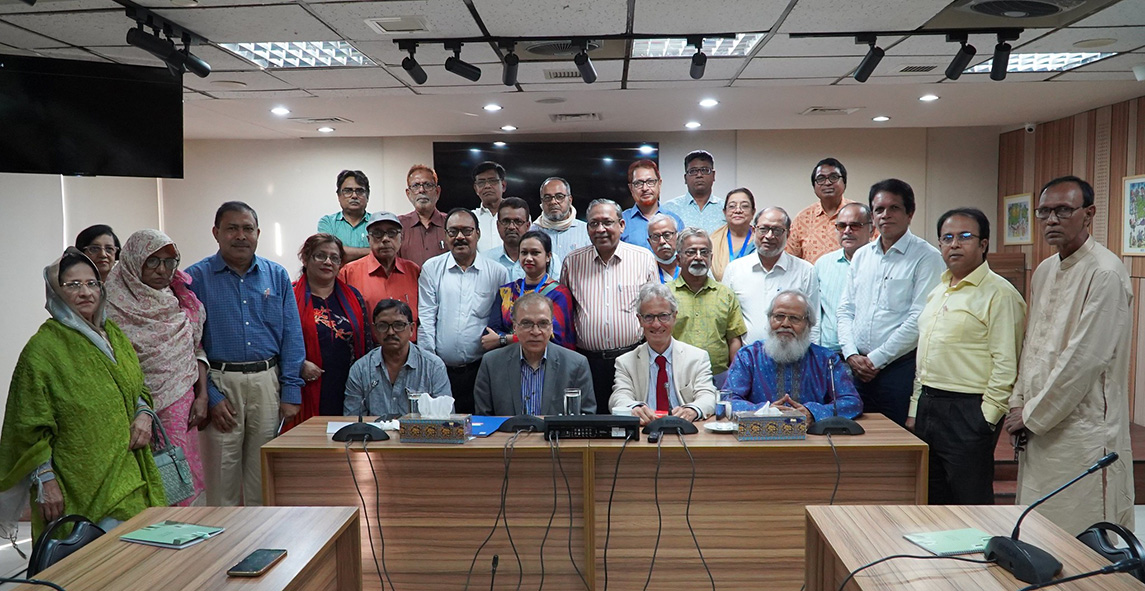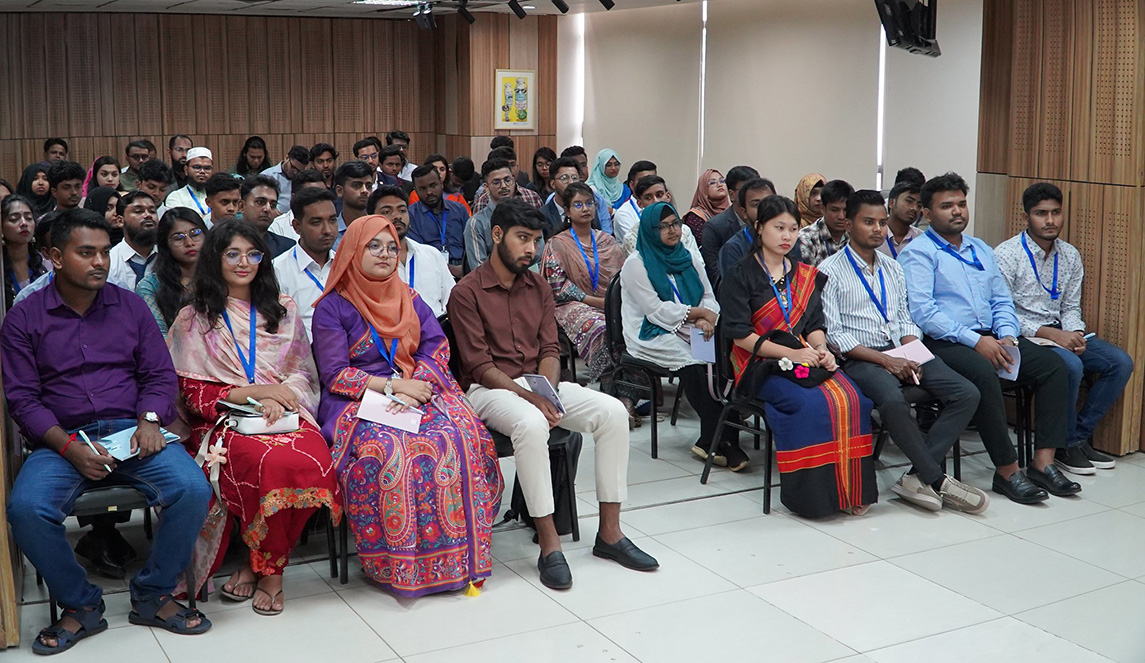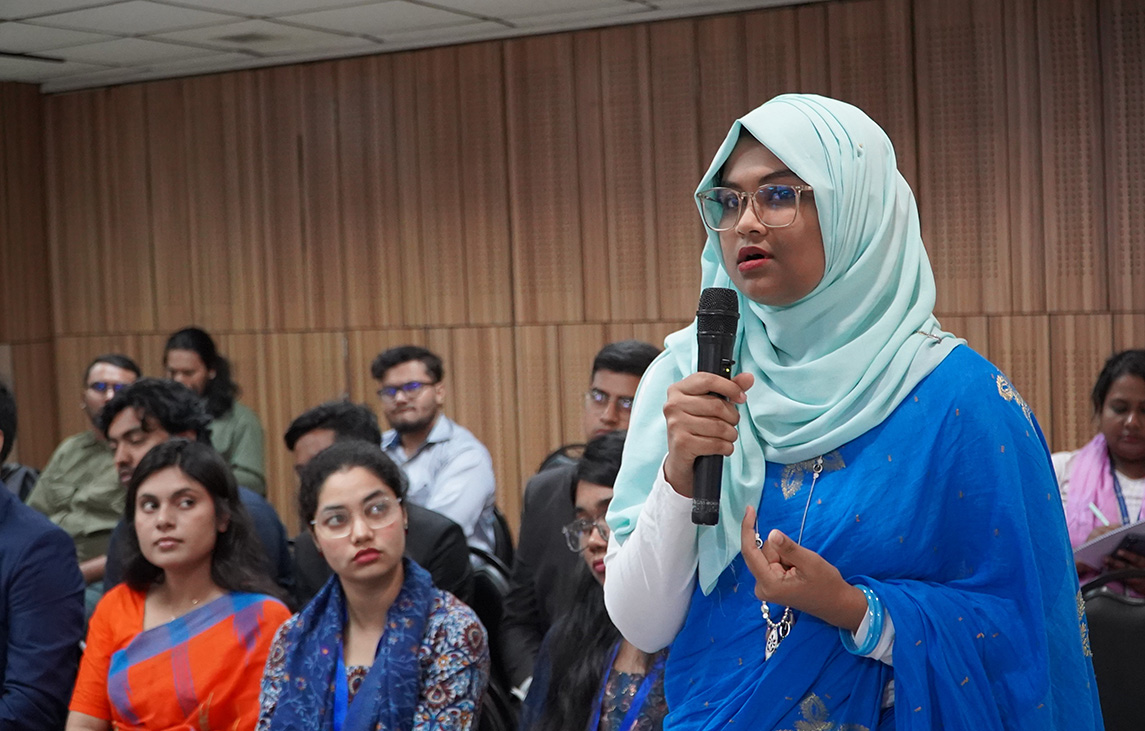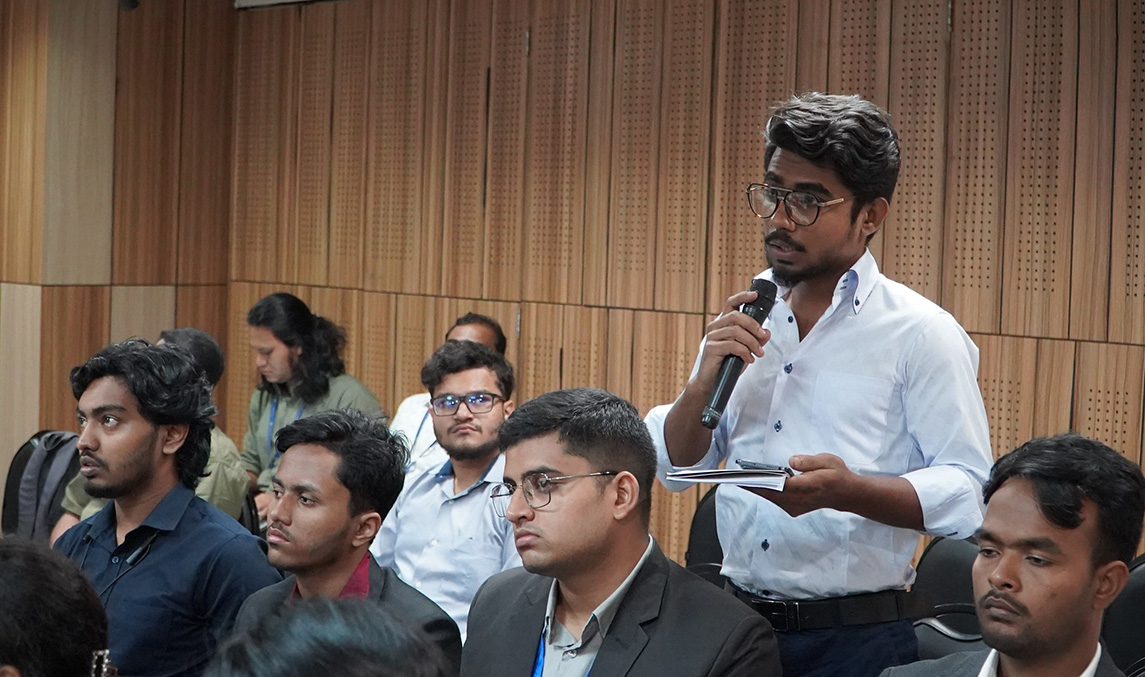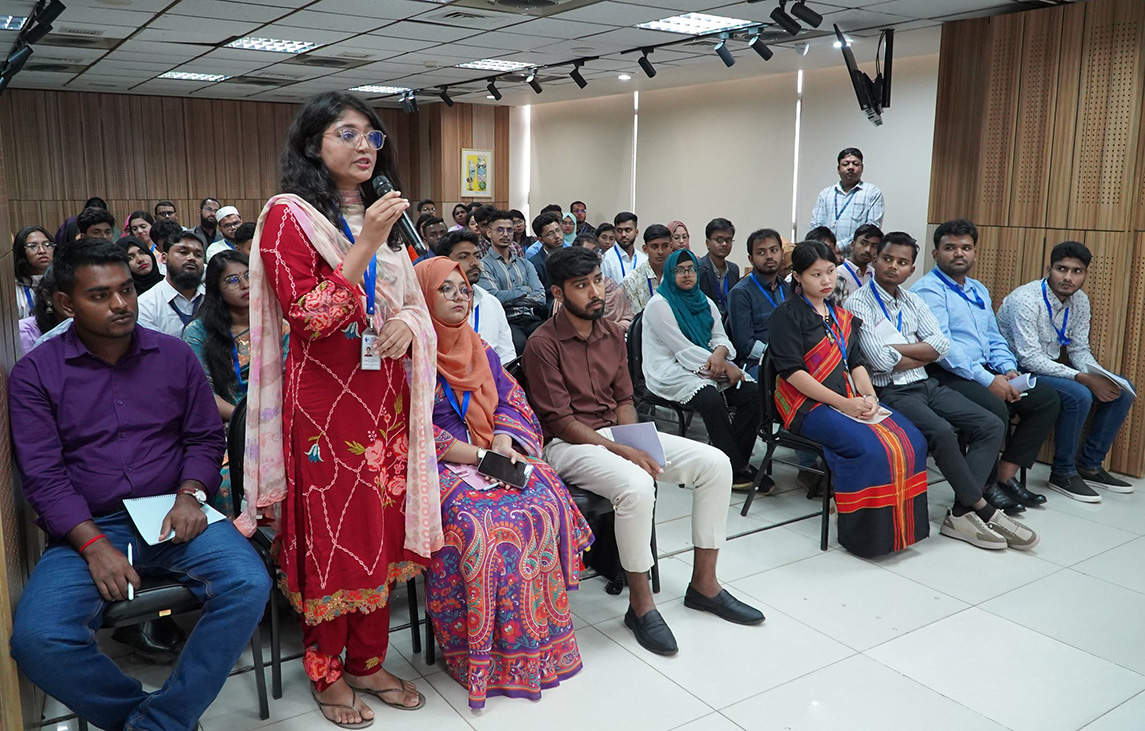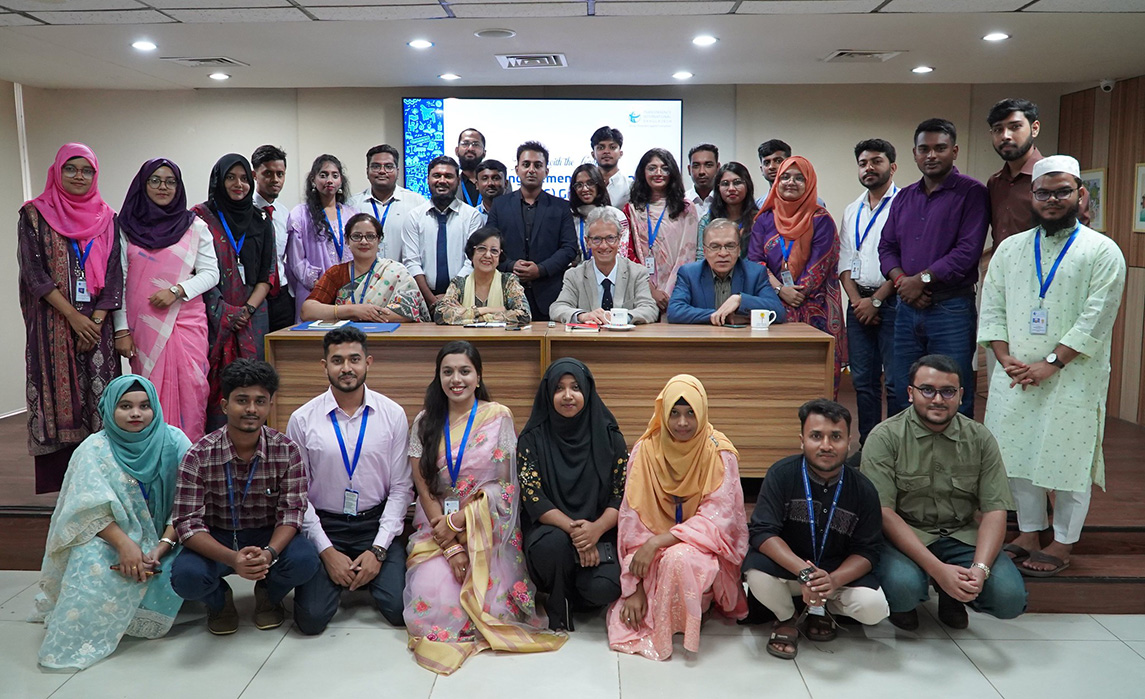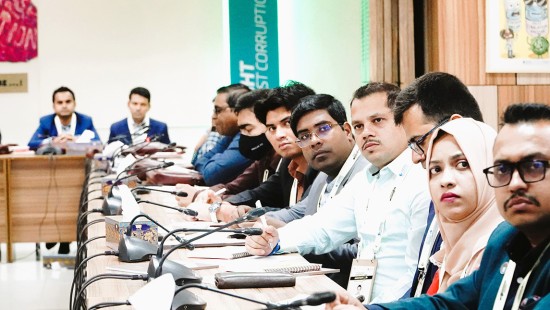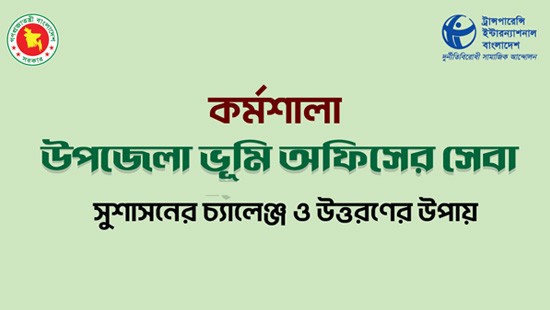Published: 05 September 2025
In a vibrant gathering that bridged grassroots voices with global leadership, Dr. François Valérian, Chair, International Board of Directors, Transparency International (TI) made his first official visit to Bangladesh, meeting with presidents of Committees of Concerned Citizens (CCCs) in Dhaka. The CCCs—voluntary platforms of local leaders mobilized under TIB's initiative—welcomed the international anti-corruption leader in a session that resonated with discussions on pressing global anti-corruption issues.
This landmark meeting created a meaningful dialogue between local voices and international expertise, as grassroots representatives shared their experiences and perspectives on accelerating the anti-corruption social movement. On his first day in Bangladesh, Mr. Valérian addressed their key concerns, including global anti-corruption challenges, youth engagement, indigenous peoples' rights, money laundering, and the need for stronger international cooperation. The discussion centered on these critical issues as local leaders provided valuable insights from their community-level work, while the TI Chair offered global perspectives on combating corruption.
One of the CCC Presidents captured the spirit of this exchange, stating, "I believe this volunteerism has strengthened my leadership while promoting anti-corruption activities in my localities. Despite sometimes facing the negative attitudes toward anti-corruption movement, I am proud to be part of this group, contributing to positive social change. Today's interaction with the TI Chair has been a unique experience, giving me courage to explore further."
The power of this grassroots connection became even more evident the following day when another extraordinary meeting unfolded. TIB's Dhaka office on September 3, 2025, youth representatives from 60 Youth Engagement Support (YES) groups gathered to meet Dr. Valérian. What began as a meet-and-greet transformed into a vibrant platform for sharing experiences, with the TI Chair responding thoughtfully to the youth's questions while they simultaneously strengthened their networks among themselves—something they rarely get the chance to do.
Enduring a 12-hour train ride from the northern district of Nilphamari, Farzana Akter Arifa, a final-year Economics student at Nilphamari Government College and active representative of TIB's YES group, arrived in Dhaka for the first time in her life. Her singular purpose was to meet Transparency International (TI) Chair Dr. François Valérian face-to-face.
"I forgot about my hectic journey when I finally saw him and asked questions regarding the involvement of political leaders in anti-corruption activities in other chapters," she recalled with evident enthusiasm. "He nicely explained TI's global work and gave examples from countries like Costa Rica, where young politicians pledge to disclose campaign funding to ensure transparency. This is so inspiring."
The questions these young leaders posed reflected their deep engagement with the movement's most pressing challenges: global anti-corruption practices, volunteer safety, strategies from other chapters, citizen-driven versus donor-driven movements, youth engagement globally, Gen Z's ethical awareness, and the broader role of young people in the fight against corruption. Valérian patiently addressed each inquiry, offering both insights and encouragement that resonated far beyond the conference room walls.
Admiring the work of TIB and the remarkable energy of Bangladesh's youth, Valérian opened his remarks with powerful words: "Your work is of the utmost importance. You are the vanguard of the fight against corruption." He connected their local efforts to global realities, noting that humanity was grappling with unprecedented challenges, with climate change posing a direct threat to Bangladesh's survival. Corruption, he explained, was deeply intertwined with this crisis—international companies had paid bribes to government officials and oil-producing countries, enabling excessive carbon emissions that harmed vulnerable environments like Bangladesh. Simultaneously, corruption blocked effective responses to the climate emergency, while policy capture further entrenched these destructive patterns.
Dr. Valérian's message carried both urgency and hope as he stressed that young people could play a decisive role by demanding change, breaking through the culture of secrecy that sustained abuse of power, and advancing transparency at every level. His words bridged the gap between Farzana's 12-hour train journey and the global movement she had joined, connecting village activism with international leadership in a way that made both the local and global dimensions of anti-corruption work feel immediate and achievable.
These two consecutive meetings—first with seasoned grassroots leaders, then with passionate young activists—demonstrated the profound significance of connecting local voices with global leadership. Together, they illustrated how the fight against corruption thrives when experience meets enthusiasm, when community knowledge combines with international expertise, and when the determination of individuals like Farzana travels from remote districts to inspire change on a global scale.


